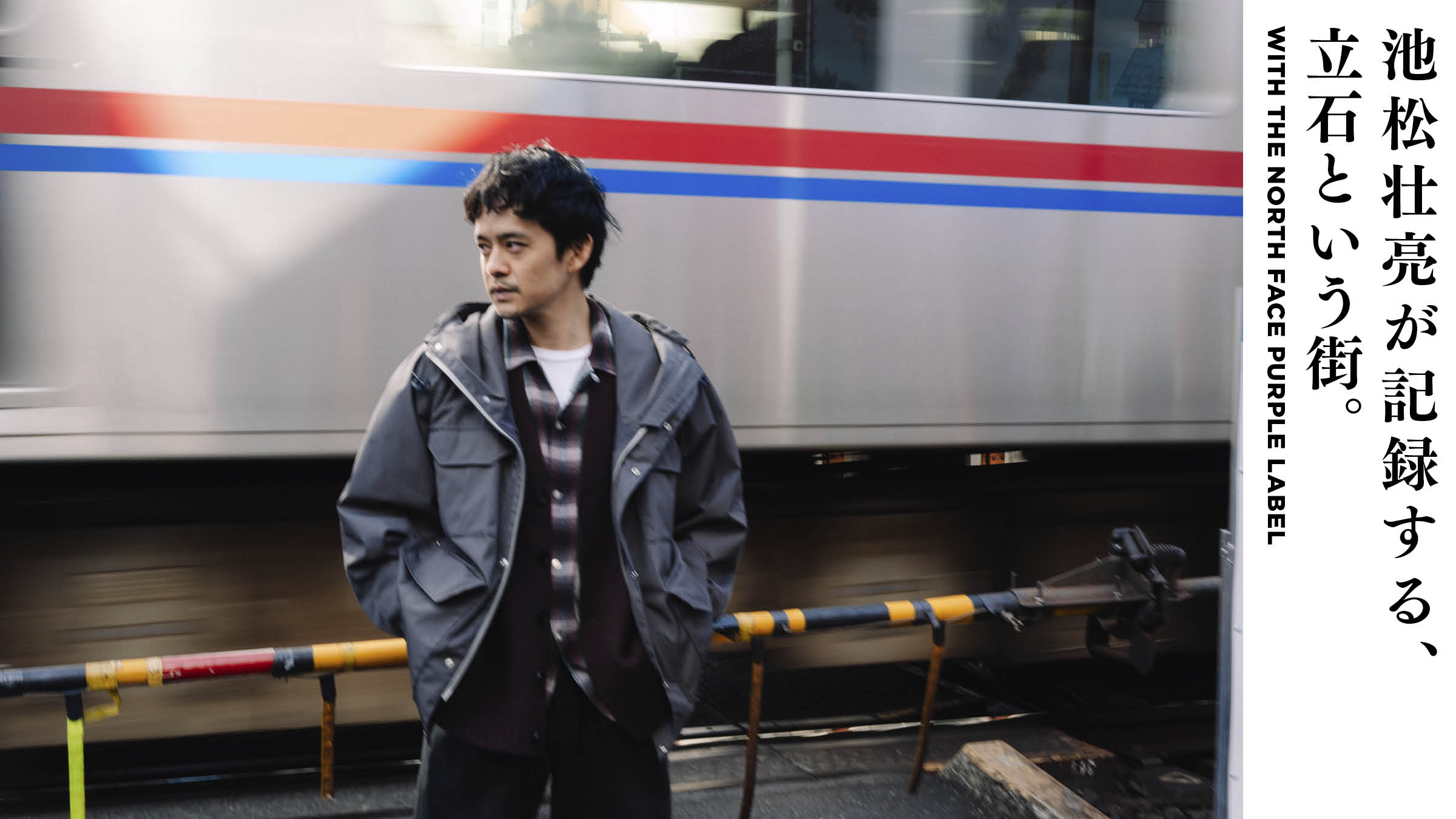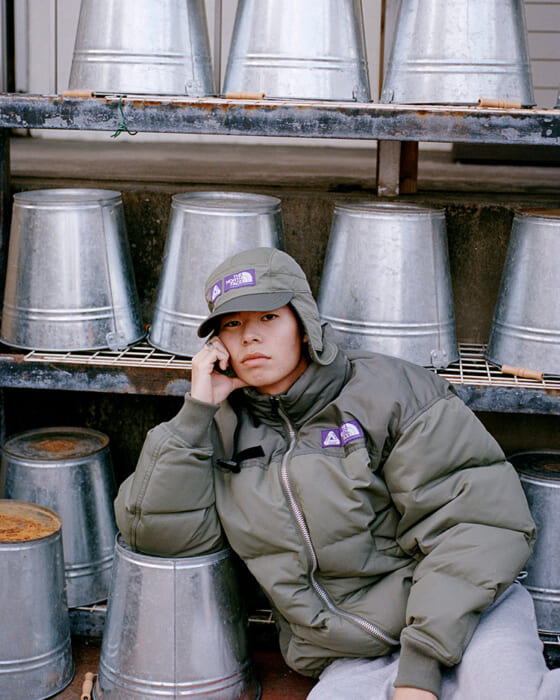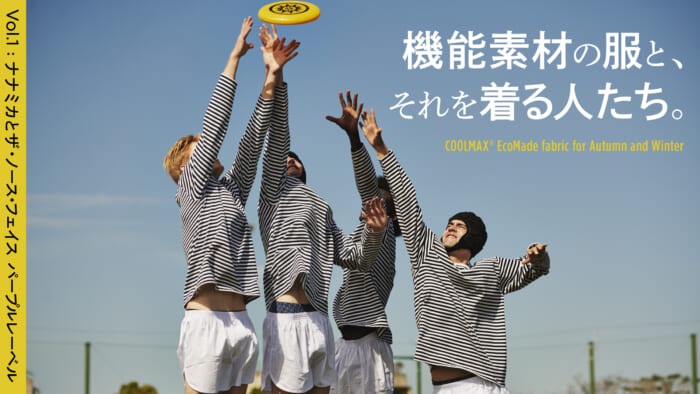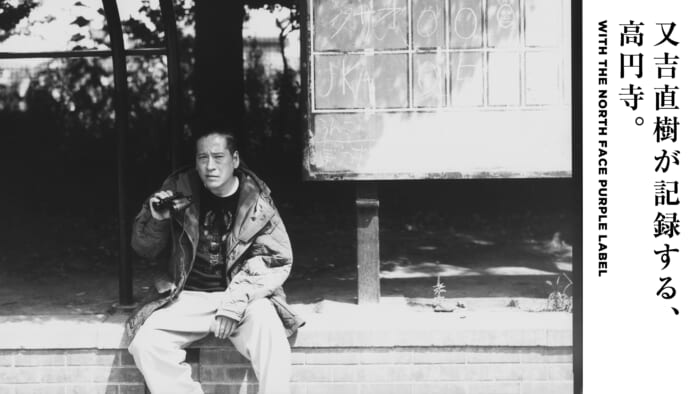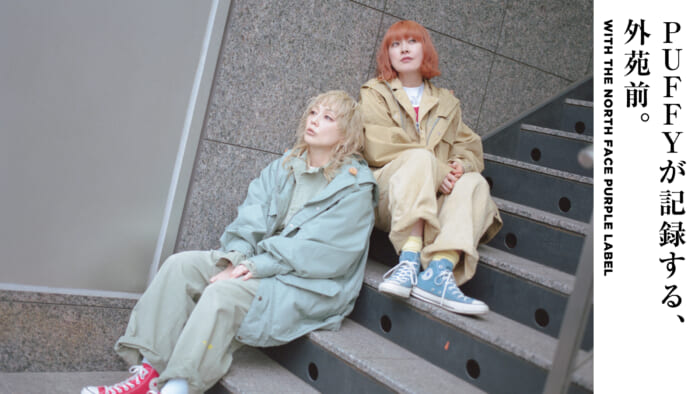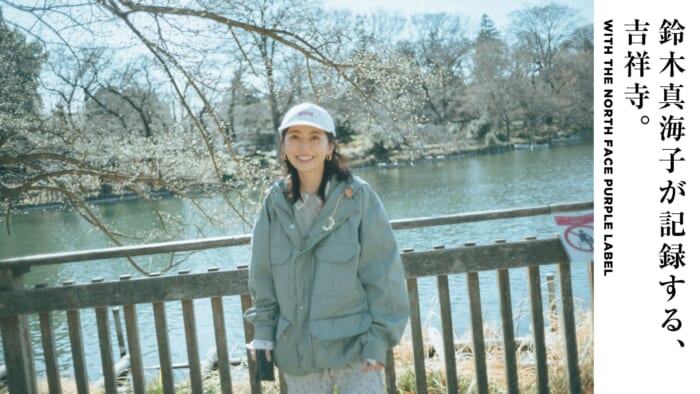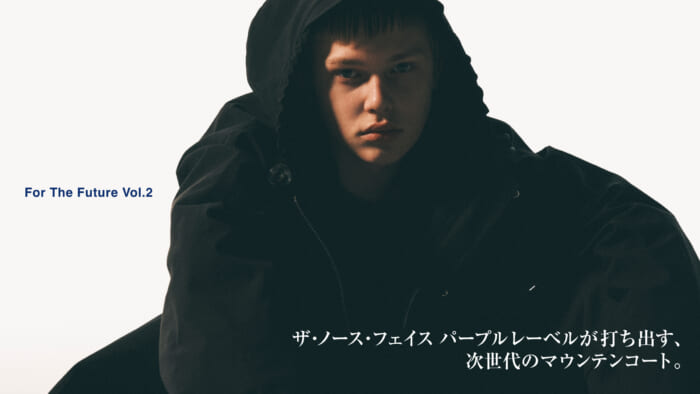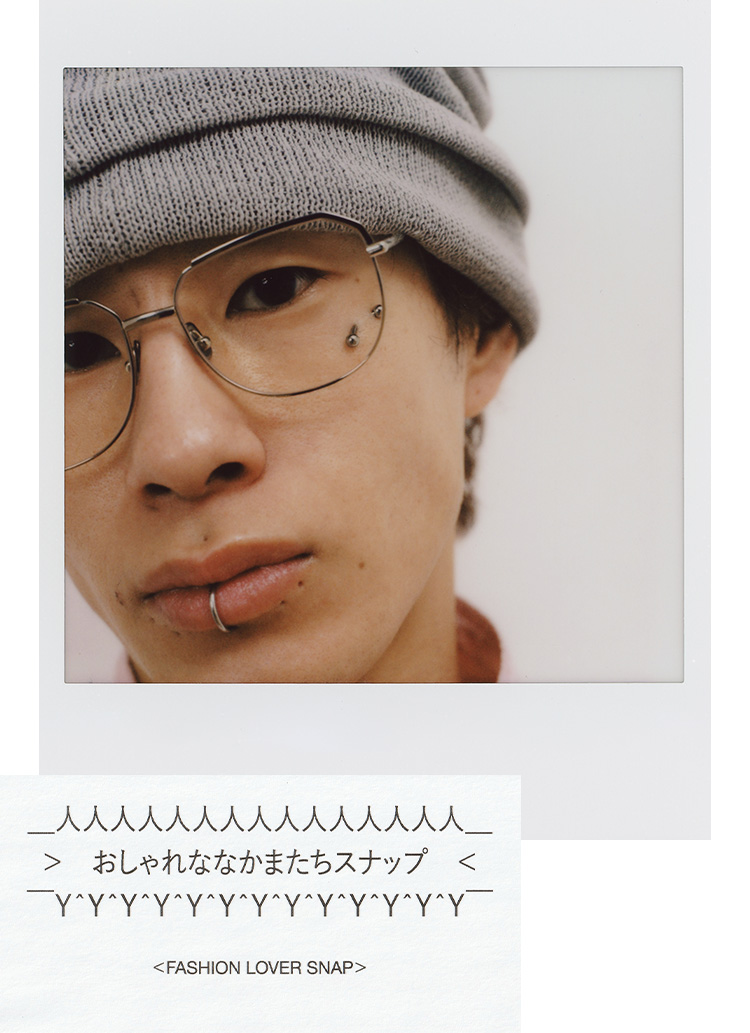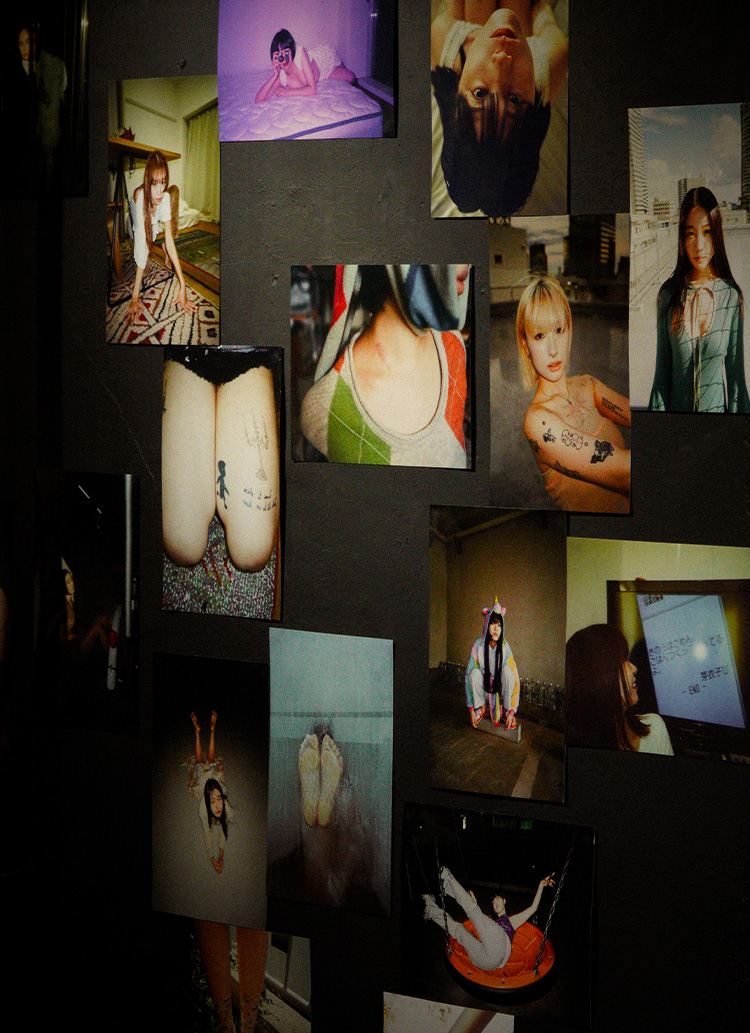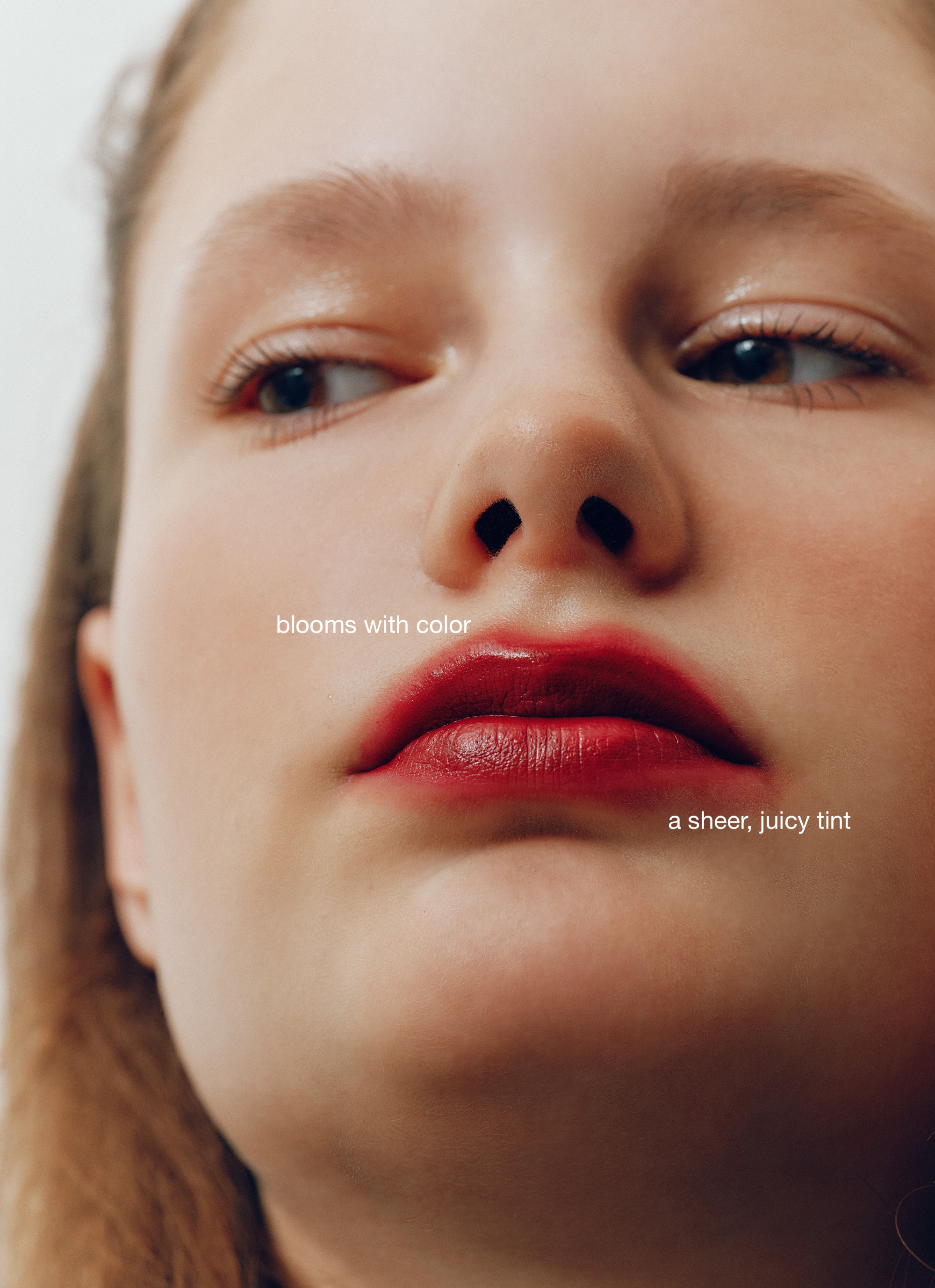I want to wear the same thing in every place.
The North Face Purple Label" pursues outdoor wear in the city by focusing on nature in the city, from grass and trees in parks and along roadsides to rain and building winds.
The mountain parka is one of The North Face's masterpieces and has been a staple item since the brand's birth. The mountain parka is made of 65/35 bay head cloth, a high-density blend of recycled polyester and organic cotton spun at a ratio of 65:35. The "65/35 bay head cloth" garment has its origins in the outdoors.
Sousuke Ikematsu, wearing the brand's signature clothing, strolled around Tateishi for this photo shoot. The North Face Purple Label values "documenting the nature that can only be found in urban areas," and we asked Mr. Ikematsu to record the city and its nature in his photographs.
How was Tateishi?
Ikematsu: I came here for the first time today, but I had always wanted to visit this area beyond the Arakawa River someday. I got the impression of a downtown with the warm smell of daily life and a harmony of old things and ease of living. There are few tall buildings, so the sky is wide, and it was very pleasant.
The North Face Purple Label mountain parka was worn as a companion while walking around town.
Ikematsu: It was very light. The weight is one thing, but there was a sense of comfort and lightness when I put it on. I also liked the brand's concept of accompanying people in various everyday situations. For example, I wanted to wear the same thing as much as possible when walking in the countryside and when entering a luxury hotel in the city. I usually prefer things that fit in with any scenery, so these clothes are very much my type. I think I have found something good, including the background of how something that has been around for a long time has gone through various updates and fashions over the ages, and has found its current form while repeating what has remained the same and what has changed.
When we talked about this project, Mr. Ikematsu suggested the downtown area as the filming location.
Ikematsu: I thought it would match wherever I took it.... I also thought that a place where the lights and smells of Tokyo would be reflected in the background would be more suitable for this project and for E-WAX's photographs, rather than showing Tokyo as a landscape.
The North Face Purple Label" places importance on the keyword "documenting nature in the city. So for this project, I asked them to take photos of nature and scenery while walking through the city.
Ikematsu: For a modern person, I don't usually take pictures, and it was a little embarrassing to have everyone looking at me. I was a little embarrassed because everyone was looking at me and thinking, "Oh, you react to this kind of thing.
I was impressed by the way you instantly set up the camera between the houses at the end of the shoot. Was it something you were thinking about when you took the shot?
Ikematsu: There were a tremendous number of towels hanging in the yard. I wondered if they had a big family with lots of laundry. I just let my mind wander and tried to capture what I was reacting to. Why I reacted is something I can think about later.
The North Face Purple Label has a line called "stroll," and walking is something that the brand is very familiar with. Do you usually go for walks?
Ikematsu: I do. It may be a hobby. It's good for a change of pace and for thinking, so I often walk for an hour or two at the end of the day, in the morning when I feel good, in the afternoon when I'm free, or in the evening when the sunset is beautiful.
For Ikematsu-san, who spends most of his time playing roles, is taking a walk one of the few times when he can get back to himself?
Ikematsu: The time when I am acting and the time when I am not acting are part of my daily life, and I don't really feel like I am on or off. It is not only when I am acting that I am on, but there are many things that come to my mind, inspirations, and discoveries that I make when I am taking a walk. That is my daily life.
I'm sorry to change the subject, but you became independent from HORIPRO at the end of August last year. What was the impetus for this?
Ikematsu: It would be a lie to say that I had not thought about it at all, but last year I suddenly felt that now might be the time for me to make the decision to become independent. I wanted to be more independent as a person, rather than as an actor, which is the image of a race. I wanted to challenge myself to see what I could do by putting myself in a place where responsibility and results are returned directly to me.
I didn't have much of an impression of fashion shoots like this one, but did you have a change of heart?
Ikematsu:
I was allowed to do a few things when I was in my early twenties, but from then on I mostly turned down such jobs when I was offered them for a period of time. I felt that someone else would be better suited for the job, and I also felt that I was encouraging consumption by dressing up in various outfits outside of my work while working as an actor. I was not at ease with that. It had been a long time since I had done a shoot like this.
I started receiving my own contacts after becoming independent, and when I was offered this project, I received a very polite e-mail. That made me decide to give it a try. I feel as if I am in the first year of this project, and I feel as if I am encountering again what I have already experienced. I believe that life is a series of encounters and documents as I change.
I heard that you met the photographer E-WAX at a certain apparel brand store where he worked. Have you always loved fashion?
Ikematsu: I have never been interested in fashion as a trend. Rather, I am very interested in what people wear in their everyday environment and in their daily lives, such as costumes and work clothes in the broad sense of the word. I wonder why people wear these clothes. I think this is one of the important things to consider when thinking about film.
I'm sure you have costumes that have a "reason to wear it" for the historical background of each work and the character of the role. By the way, you are wearing black today.
Ikematsu: I have been wearing only black for sometime now. This also sounds like life and wardrobe, but when I am an actor, I spend most of my time in costume on shooting days, and the only time I wear plain clothes is when I go and come back. In my profession as an actor, where I wear many different colors, I don't think I want to wear colors on a regular basis. Rather, I think about how I can always keep myself flat in the expression I am aiming for. I naturally choose to wear black in order to keep my mood neither up nor down, but to keep myself in the most comfortable state.
I have heard you speak so far, and I have sensed a sense of your consistent beliefs. Finally, please tell us what you would like to challenge in the future.
Ikematsu: Basically, there is no change in what we have been doing and what we have been striving for. In my 20s, I focused on the deep, but now that I am in my 30s, I am thinking more broadly. I think it is important to both pursue film, video, and the kind of expression I believe in, and to communicate that more broadly, to expand the possibilities and range of movement. In a consumer society, these two things are contradictory, so it is very difficult. There are many difficult things that I am not used to after becoming independent, but I feel that there are many things that I should have done and have been able to get away with without doing. I feel that there are many things that I should have done, and many things that I should have avoided doing in the past. I would like to enjoy it like an experiment to see what I can do in the midst of it.
Town and nature photographed by Sousuke Ikematsu.
- 1
- 2


